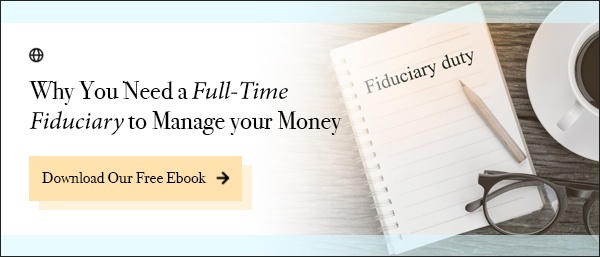Global View Investment Blog
Estate Planning During Periods Of Inflation And Market Volatility
Estate planning during periods of inflation and market volatility can be complicated. As inflation and market volatility continues to increase, there are several things you can do in your estate planning process that may mitigate some of these effects. A team of experienced investment advisors in Greenville, SC, can help.
How does inflation and market volatility affect my estate plan?
Many folks nearing retirement don’t realize the damage inflation can cause to their estates. Crucially, your estate plan’s assets need to grow fast enough to keep up with inflation. Failure to do so devalues your estate, leaving less for beneficiaries.
Market volatility often accompanies changes in the inflation rate due to fluctuating demand for different asset classes, including stocks, bonds, and real estate. Your estate plan must be sensitive to the damage caused by high inflation, but it shouldn’t overreact to volatility In the market. The task for retirement financial planners is to position estate assets to withstand these twin challenges while pursuing opportunities for long-term growth.
The period from 1950 to today illustrates the differential impact of inflation on real estate and wages, with the former increasing by nearly 5,000% and the latter by just over 2,000%. In other words, things cost more, but we earn less.
One of the critical goals of an estate plan is to manage inflation’s impact on federal/state estate and inheritance taxes, which requires periodic reviews of asset values. For example, your beneficiaries might have to pay significant taxes if you were to die when your assets, particularly real estate, were uncharacteristically inflated. Compounding the problem would be a sudden loss of investment values shortly after that due to market fluctuations that leave fewer resources for paying the tax bill.
Clearly, the gain in the value of your real estate is a welcome benefit of inflation. It’s the intrusion of tax thresholds that can sour the benefit. Currently, the federal estate exemption is $12.06 million, which may be adjusted for inflation after 2025; state tax thresholds start as low as $1 million.
You can potentially reduce your estate’s value and, as a result, its tax bill through charitable gift-giving of property. For example, by donating an appreciated real estate property to a charitable remainder trust (CRT).
Simultaneously, your retirement portfolio should be structured to take advantage of long-term asset returns with controlled risk exposure. Typically, this requires precise allocation of investments across a broad and highly diversified set of asset classes to buffer against short-term fluctuations.
What if I have a revocable living trust?
 A revocable living trust (RLT) owns the property you transfer to it. RLT assets avoid the delays and costs of probate. As the trust grantor, you have the right to change the trust’s provisions during your lifetime as long as you have the legal capacity to make decisions. To protect the values of inflation-hedged assets assigned to your RLT, it should allow its trustee to decide when to make distributions to beneficiaries.
A revocable living trust (RLT) owns the property you transfer to it. RLT assets avoid the delays and costs of probate. As the trust grantor, you have the right to change the trust’s provisions during your lifetime as long as you have the legal capacity to make decisions. To protect the values of inflation-hedged assets assigned to your RLT, it should allow its trustee to decide when to make distributions to beneficiaries.
The goal is to prevent immediate liquidation of these assets so that the inflation protection they offer is maintained and panic selling in a volatile market is avoided.
This strategy may cause friction between the trustee and beneficiaries, which you should defuse while you can. The trust should contain provisions to resolve these issues without going to court (a costly place that rapidly depletes wealth).
The RLT should take advantage of the lower tax brackets for individual beneficiaries compared to a trust’s high-income tax bracket. Your fee-only investment advisor can make recommendations on using generation-skipping tax provisions and other family governance systems to preserve the trust for multiple generations.
Preparing for the next generation to take over your estate or business
According to the Harvard Business Review, only 19% of family-owned and -operated businesses have transitioned to second-generation leadership in the past five years. Unfortunately, only a minority of these “have a robust, documented, and communicated succession plan in place.” Children are often unaware, unprepared, and/or unwilling to participate in running the family business or estate. Evidently, the younger generation requires careful preparation to assume family leadership roles.
Preparations should start early. Shadowing programs such as Bring Your Children to Work introduce family members to businesses, departments, and employees. As they age, the opportunity exists to move your family members through the organization and have them learn all aspects of the business. This knowledge can both motivate them and give them confidence. Involvement with industry associations and mentors broadens their outlooks and helps them develop personal networks.
Do not underestimate the importance of dinnertime conversations to convey the business’ mission, history, and offerings. Even war stories about how the company survived crises (and successes) can provide a better context for understanding.
To avoid family dysfunction, emphasize good business habits, starting with integrity. Squabbling siblings are less likely to cooperate than those raised to avoid rivalries and dishonesty.
The value of a financial advisor for your estate plan
A long-term plan spelling out your intentions can help your family members plan their careers. If you want to sell your company, the plan should include teaching your children how to manage their own portfolios.
Your financial advisor can help with all aspects of estate planning, from the disposition of assets to creating a Family Council to keep the family members connected to each other and perhaps to your business. In addition, your advisor can help you manage your estate plan and your assets to maximize your long-term wealth while minimizing the tax bite.
If you are retiring in Greenville, SC, or Columbia, we invite you to contact the retirement financial planners at our firm.
Our certified financial planners in Greenville, SC, are advocate advisors that will help you plan your estate, investments, and business succession to preserve your wealth for generations to come.


Written by Joe Hines
Joey's primary focus is working with clients in the goals setting and financial planning process. He has extensive experience is in helping clients facilitate the decision making process, leading them through the implementation of their financial plan and contributing to their peace of mind. This includes helping clients gain an understanding of estate planning, charitable giving, and helping them implement these plans by working closely with estate planning attorneys.
Are you on track for the future you want?
Schedule a free, no-strings-attached portfolio review today.
Talk With Us





